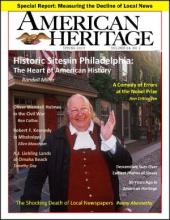June/july 1985
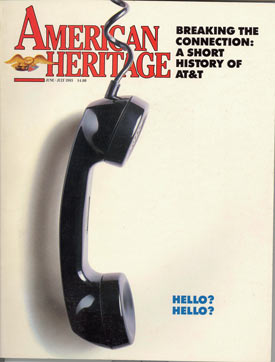
Departments
CORRESPONDENCE
LETTER FROM THE EDITOR
LETTERS TO THE EDITOR
POSTSCRIPTS TO HISTORY
READERS’ ALBUM
THE BUSINESS OF AMERICA
TIME MACHINE
Features
Have historians underestimated the importance of Roosevelt’s twenty-four-year struggle with the disease that made him a paraplegic?
In 1983 our country went to war and left the press behind. The outcry that followed raised issues that first came up when Abraham Lincoln was President and still remain with us.
The Civil War ignited the basic conflict between a free press and the need for military security. By war’s end, the hard-won compromises between soldiers and newspapermen may not have provided all the answers, but they had raised all the modern questions.
Westmoreland and Sharon embarked on costly lawsuits to justify their battlefield judgments. They might have done much better to listen to Mrs. William Tecumseh Sherman.
His works ranged from intimate cameos to heroic public monuments. America has produced no greater sculptor.
A lot of people still remember how great it was to ride in the old Pullmans, how curiously regal to have a simple, well-cooked meal in the dining car. Those memories are perfectly accurate—and that lost pleasure holds a lesson for us that extends beyond mere nostalgia.
Slovenly, impulsive, impoverished, and grotesque, Constantine Samuel Rafinesque was the greatest naturalist of his age. But nobody knew it.
The story of AT&T from its origins in Bell’s first local call to last year’s divestiture. Hail and good-bye.
His job was to destroy German submarines. To do it, they gave him twelve men, three machine guns, four depth charges, and an old wooden fishing schooner with an engine that literally drove mechanics mad.
A veteran reporter looks back to a time when the stakes were really high — and yet military men actually trusted newsmen.
Issue by year
2023


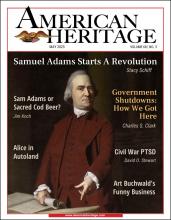



2022

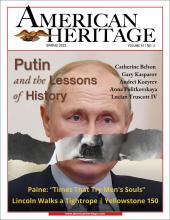




2021







2020




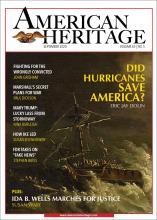



2019

